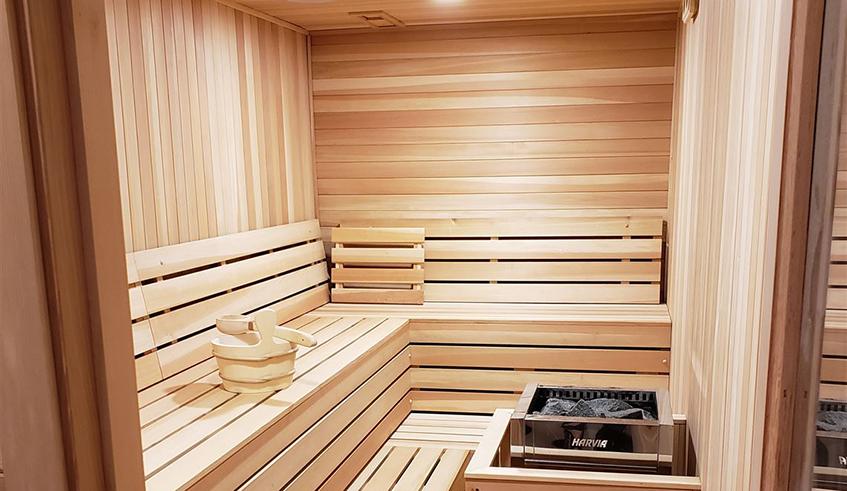Africa-Press – Rwanda. I have never been to a sauna, but I have heard a lot of people describe it as a place of relaxation, one that ‘cures stress’ and improves health. But are saunas only good for you?
Saunas are small rooms that are heated to temperatures between 66 degrees to 90 degrees Celsius. The interiors are unpainted, wooden, and have temperature controls. Saunas use dry or wet heat.
According to Medical News Today, saunas have been used for thousands of years and are still popular today. A sauna can help people to unwind and relax, and may even have other health benefits.
“I only go to saunas for relaxation purposes, they can be quite addictive because of that easing your body gets,” says Larissa Munezero, a Kigali resident.
Christian Chance Ndahiriwe, a physiotherapist at University of Rwanda’s College of Medicine and Health Sciences, says that there are no proven severe bad effects of saunas but there are negative ones that can be prevented.
“There are misconceptions that saunas can help with weight loss, but in reality, saunas only help with relaxing of the body and improving circulation.
“The benefits of saunas are that when you are inside the room with a lot of steam, it helps release the unwanted water in your body, and improves cardiovascular health. But there are negative effects, like dependency, when someone goes to a sauna often they get addicted and feel like they can’t survive even a day without it. There could be spread of skin infections because the people with you in that room don’t all have a healthy lifestyle,” Ndahiriwe explains.
Ornella Ujeneza who works in a sauna, and as a masseuse at Palast Rock in Nyamata, says that the benefits of saunas outweigh the bad. “Saunas help to release a lot of waste in and outside of body, more than bathing, the steam released in the rooms helps filter away waste in the body like water, after that, people feel fresh again,” she explains.
“But going to saunas a lot is also very dangerous because it destroys the skin. It is best to go there once a week. When in a sauna, the skin gets affected by the heat released and it can cause skin defects,” she adds.
According to Ujeneza, natural saunas that use local herbs for treatment are not as harmful as steam saunas. “Steam saunas use electricity, therefore, they clear the skin a lot, but it is said that using them too much destroys the skin and could possibly cause cancer,” she says. Healthline weighs the pros and cons of saunas:
The benefits
Relaxation
Saunas have been traditionally used to produce a feeling of relaxation. As your heart rate goes up and your blood vessels dilate, there is an increase in blood flow to the skin. Saunas may also improve blood circulation.
Pain relief
Using a dry sauna can leave people feeling invigorated. Since the blood vessels relax and dilate in a sauna, blood flow increases and the experience can help reduce tension in the joints and relieve sore muscles.
Risks
Dehydration
The average person loses about a pint of sweat in just a short period of time in the sauna, so be sure to drink plenty of water before and after using one.
Fertility
Research has found an association between sauna use and loss of fertility in men. A recent study in Finnish men who underwent two 15-minute sauna sessions per week for three months found that the use of saunas had a significant negative effect on their production of sperm.
Toxins
The sole purpose of sweating is to prevent overheating of your body. It’s your liver and kidneys that do the detoxifying. According to Ndahiriwe, saunas do not replace sports, because in saunas the sweat that comes out of the body is only water and no salt, the body needs to release that salt, also sports have more benefits than saunas because you lose toxins.
When to avoid saunas
Certain health conditions are not compatible with saunas or steam rooms, it is better to avoid them in cases such as; • pregnancy • heart diseases, asthma, or other breathing problems
• epilepsy
• high or low blood pressure
• severe influence of alcohol and other drugs
For More News And Analysis About Rwanda Follow Africa-Press






